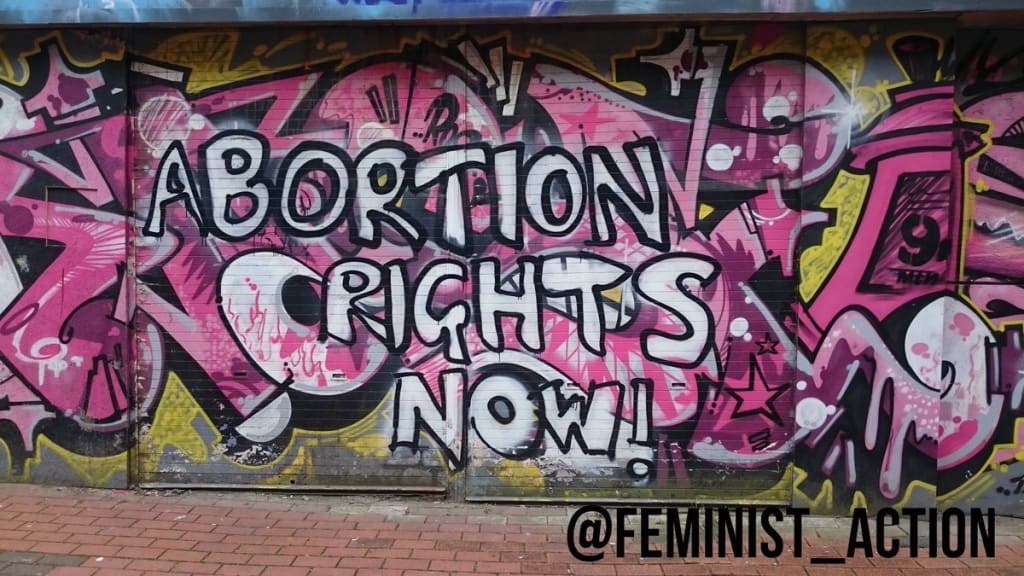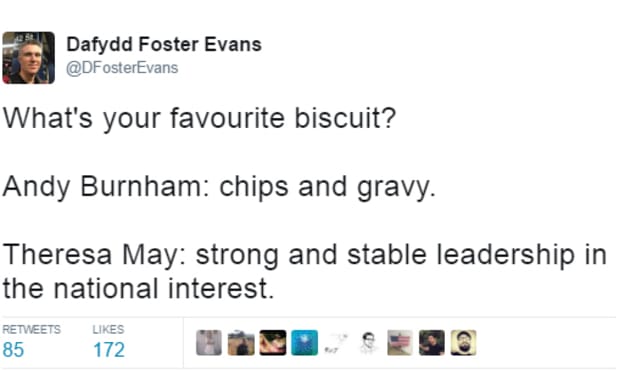Westminster's DUP Deal Could Bring Equalities Reform
A deal between the Conservatives and the DUP might have unintended consequences to benefit women and minorities in Northern Ireland

Finally, we actually have a government in Westminster. Sure, it’s not the greatest option, but the Conservative-DUP amalgam is the best we could hope for in the present circumstances. It’s been something of a worry to commentators across the political spectrum, as the DUP are extremely socially conservative, and Northern Irish politics, in general, are held back by religious influences.
Because the UK electoral system usually returns a single party with a majority of seats, coalition governments are unusual. The two previous coalition governments were the Churchill War Ministry (1940–1945), and the more recent Conservative-Lib Dem government (2010–2015). The former was necessitated by reasons outside of the electorate’s control, and the latter was an early sign of the political turmoil we are seeing today.
But in those cases, and for every other elected UK government of the 20th and 21st centuries, the governing parties were managed from the UK mainland. Northern Irish politics has always followed a different set of rules to the rest of the British Isles, with a different set of parties and policies. Until this year, there was little integration between the two separate parliaments. For historic reasons, a number of NI MPs, representing Sinn Fein, do not take their seats in the Commons, and Northern Irish matters are dealt with in the devolved parliament.
Now, the 10 elected MPs of the Democratic Unionist Party will be taking their seats as part of a confidence-and-supply agreement with the Conservative Party. Most of the focus until recently has been on their influence on Westminster, with a lot of concern over their more traditional views, and how this may affect equalities issues in Great Britain. But something surprising came up in my news feed today, and it demonstrates a success of Westminster’s influence in Belfast.
Reproductive rights in Northern Ireland have lagged behind those of the rest of the UK ever since 1967, when the law was changed in Great Britain, but not in Northern Ireland. There are legal exceptions in Northern Ireland, but the criteria are applied far more strictly than they are written, so that in practice abortion is illegal there. Legally speaking, in Great Britain the law only allows abortion in precise medical circumstances, but the definition is interpreted more broadly, so that it is much easier to obtain an abortion on this side of the Irish Sea.
Due to the discrepancy in the law between these two territories, there have been numerous cases of women from Northern Ireland travelling to Great Britain for the procedure, or worse, attempting to end their pregnancies without medical supervision. It’s a situation that no-one is happy with, but it has been tolerated as just one of those things. Until today, that is. Ministers voted in favour of allowing Northern Irish women to have free abortions on the NHS in England. Now, it’s a small victory, as they will still need to travel to Great Britain for the abortion, but removing the fee they would have previously been charged is a tiny step forward.
Ideally, equalities law should be the same in all parts of the UK. Devolution allows circumstances such as these to happen. And it is a very serious matter. The health of women living in Northern Ireland is treated as less important than that of those in Great Britain—and this must be changed. There are more equalities issues besides reproductive care. Equal marriage is not permitted in NI, and disability legislation lags behind.
A further complication comes with a law that applies throughout the UK, but has been applied in NI specifically to women attempting to have a safe abortion under an unfair legal system. The 1861 Offences against the Person Act criminalises anyone who is not a doctor that performs an abortion. This includes cases in which an abortion is self-induced. Women in Northern Ireland who cannot travel to Great Britain for medical care are already vulnerable. And then the state uses a clause in a 116-year-old law to punish them further. Recent cases are of women who have attempted to end their pregnancies by the safest means possible—abortion pills—who have then been convicted of a criminal offence. If they had been born in a different part of the UK, the situation would never arise. And yet by an accident of birth, any woman in NI who procures safe means to end her own pregnancy risks spending life in prison—yes, you read that correctly. Taking, or obtaining, abortion pills in Northern Ireland can be prosecuted by life imprisonment.
Today’s ruling is the first step towards true equality for the women of Northern Ireland. It was pushed through in order to get the Queen’s Speech passed. Goodness knows how the negotiations with the DUP went on that one. It would certainly go some way towards explaining why it’s taken 3 weeks to form a government, and the existence of that £1.5bn sweetener to the DUP (in fairness, Northern Ireland desperately required additional funding, and I don’t see that generous contribution as a bad thing).
Perhaps now the real negotiations can start: with proper representation in Westminster, we must challenge the inequities faced by the people of Northern Ireland. However, closer political union is also problematic: we have been focused on the deal being brokered in London, but in Belfast the NI Assembly has not yet nominated new members as a result of power-sharing talks being drawn out. It's possible that without an agreement between the main NI parties, that direct rule from Westminster would be imposed. This could be seen as a step backward, and it is unlikely to go undisputed, especially considering the Conservative Party's partial interest in Ulster.
And then what? There’s the matter of the Irish border to consider. The DUP want a “soft border,” i.e. no checkpoints or restrictions on movement, but is that possible if we withdraw from the Single Market—the version of Brexit our Government has promised us? And what else might they have to concede in return for these gifts? Could this be the beginning of a closer union and political reform? If so, we must watch closely: the DUP have conceded on some issues, but they will bear influence on others. While NI might be moving into the 21st Century, let’s not take GB back in time.
About the Creator
Katy Preen
Research scientist, author & artist based in Manchester, UK. Strident feminist, SJW, proudly working-class.






Comments
There are no comments for this story
Be the first to respond and start the conversation.